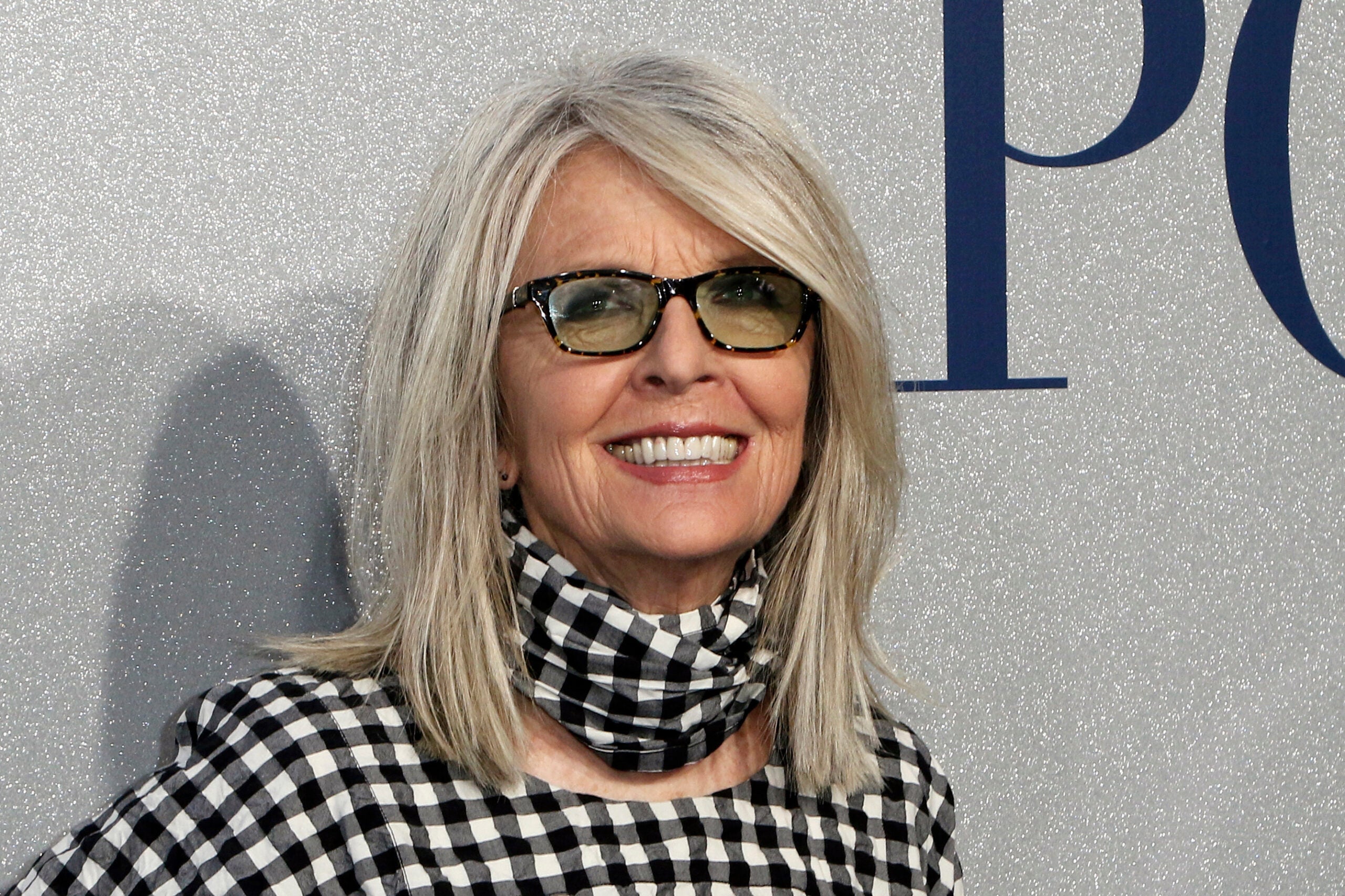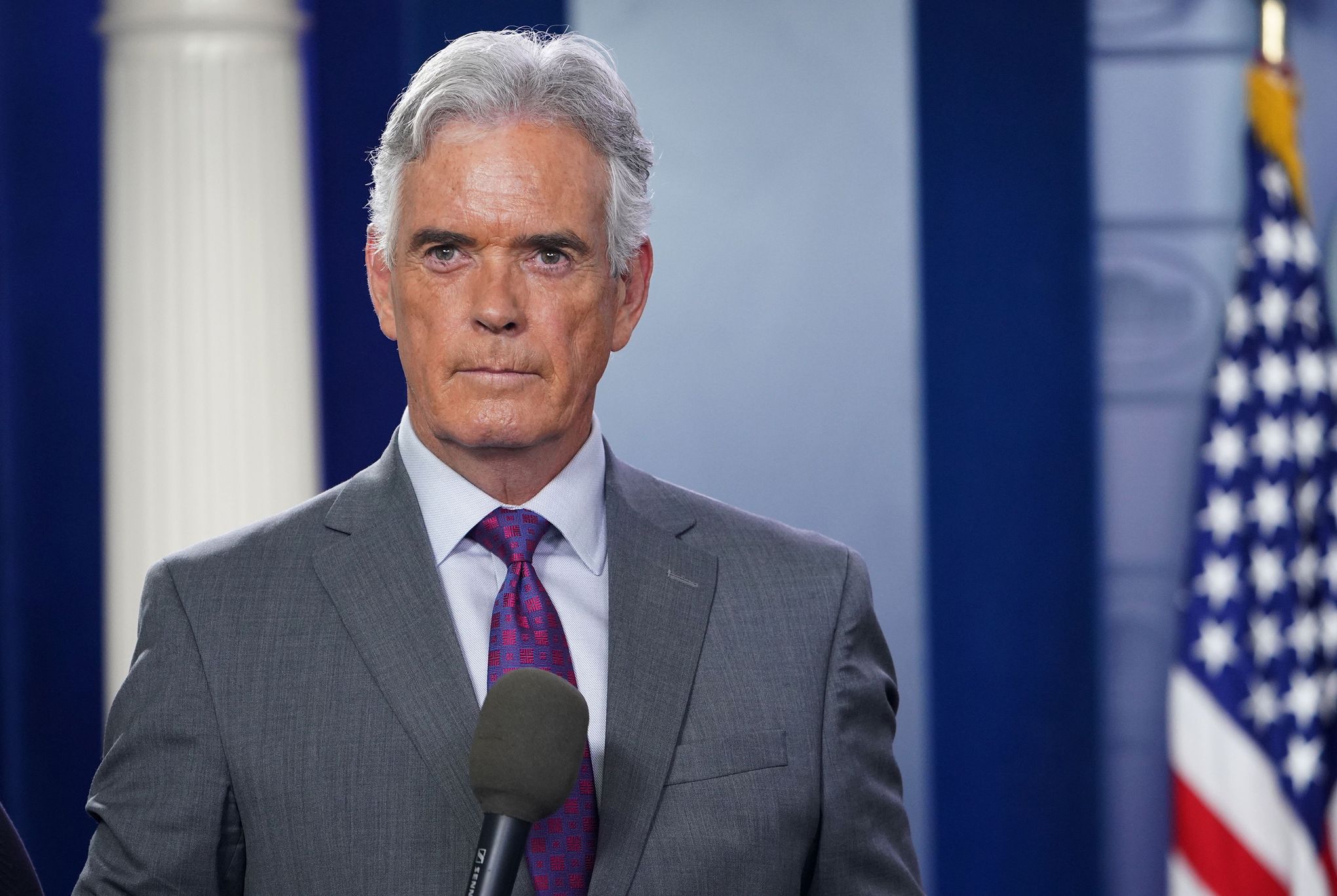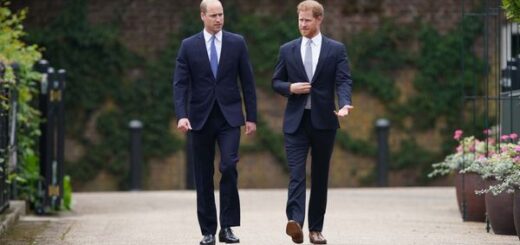No press. No spotlight. John Roberts entered Diane Keaton’s funeral quietly, not as a news anchor but as family. When the chapel fell into silence, he rose from his seat, his eyes fixed on the casket draped in white lilies
There are moments when even the most familiar voices in America fall silent — moments when the bright lights of television and celebrity dim before something far greater: loss.
That was the feeling on Sunday morning inside a quiet chapel in Los Angeles, where family and close friends gathered to say goodbye to Diane Keaton, the beloved actress whose charm, wit, and eccentric grace shaped half a century of American cinema.
But there were no cameras. No reporters. No headlines. Just the echo of hymns, the scent of lilies, and one man standing among them — John Roberts, the Fox News anchor known for his calm composure and journalistic precision. On this day, however, Roberts was not there as a broadcaster. He was there as family.
:max_bytes(150000):strip_icc():focal(749x0:751x2)/john-roberts-fox-news-0-082825-107983cedf624bacbba386eb3ff6bfbb.jpg)
A Private Goodbye
The funeral had been kept secret from the public. Invitations went out quietly, hand-delivered by family members who wanted to protect Diane’s final wish — that her farewell remain intimate. Those who knew her best understood. “Diane was never about spectacle,” one friend shared. “She was about sincerity. She hated the performative side of Hollywood, even as she helped define it.”
The chapel, tucked into a grove of jacaranda trees, was decorated simply: cream-colored candles, faded black-and-white photos from her early film days, and, at the front, a mahogany casket draped in white lilies.
It was mid-morning when John Roberts arrived — alone, dressed in a dark suit, his familiar face softened by grief. For a man used to navigating the pressures of live television, his quiet entrance said everything. No entourage, no press statement. Just a hand over his heart and a bowed head as he found his seat among family.
Witnesses recall how Roberts remained composed throughout much of the service — until his turn came to speak. Then, for the first time in decades, the nation’s trusted anchor appeared visibly shaken.
“She Taught Me That Stillness Is a Kind of Strength”
When Roberts rose to deliver his eulogy, the chapel fell completely silent. He paused for several seconds, his gaze fixed on the casket before him. When he finally spoke, his voice trembled — softer and more human than audiences had ever heard it on television.
“Diane,” he began, “wasn’t just a great actress. She was a great soul.”
He spoke of their long friendship — one that began, surprisingly, not in the glitz of a red carpet event, but during a quiet charity dinner in 2006. “I was nervous,” he recalled with a faint smile. “You don’t expect Diane Keaton to sit next to you and start asking about your childhood.”
They had stayed in touch for nearly two decades after that night, bonding over art, faith, and their shared skepticism of fame. Roberts recounted how Diane would call him after particularly tough broadcasts — especially those involving tragedy or division — and remind him, “You’re talking to people, not to cameras.”
“She taught me,” he said, “that stillness is a kind of strength. That in a world shouting for attention, listening is the most radical act of all.”

A Portrait of Grace
To millions, Diane Keaton was a movie star — the quirky, brilliant, endlessly expressive muse of Woody Allen, the romantic heroine who turned aging into an art form. But to those who knew her best, she was an artist of the ordinary.
“She found beauty in imperfection,” said one longtime friend. “She loved crooked furniture, mismatched shoes, and messy emotions.”
Her home, famously cluttered with journals, photos, and vintage hats, was a testament to a life lived without apology. “She wasn’t afraid of time,” Roberts reflected in his speech. “She once told me, ‘Every wrinkle is a line from the story you’re supposed to tell.’”
It was that authenticity — the courage to be unpolished in an industry obsessed with perfection — that made Diane Keaton not just loved, but believed.
“She had a way of reminding you,” Roberts continued, “that your worth isn’t in your reflection. It’s in your reflection on others.”
A Voice That Trembled, A Room That Wept
As Roberts spoke, several mourners — including close colleagues and friends from across Hollywood — were seen wiping away tears. His words weren’t rehearsed. They felt spontaneous, born from genuine love.
When he reached his closing lines, his composure faltered. “We’ll keep your laughter with us,” he whispered, his voice breaking. “And your quiet courage. You were the only person I ever knew who could make silence feel like home.”
He stepped forward, took the single white rose he had carried with him since arriving, and placed it atop the casket. For a moment, he lingered, leaning slightly as though speaking privately to Diane one last time. Witnesses said his lips moved — but no one could hear the words.
Then he returned to his seat.
No applause. No movement. Only the sound of faint sobbing and the stillness of a nation mourning together.

Beyond Hollywood — A Legacy of Humanity
In the days following the funeral, the story of John Roberts’ quiet tribute spread slowly — not through official networks, but through whispers among those who had been present. Eventually, a few photos emerged: Roberts in the pews, head bowed; a single rose on the casket; the chapel bathed in morning light.
Social media lit up with tributes from across the political and cultural spectrum. “For once,” one viewer tweeted, “we didn’t see John Roberts the journalist. We saw John Roberts the man.”
And that was, perhaps, the truest reflection of Diane Keaton’s influence — that even in death, she inspired people to strip away the performance and reveal their hearts.
“She made vulnerability fashionable,” said one Hollywood director. “She gave permission to be awkward, to be unsure, to be real.”
Her passing leaves a void not just in cinema, but in the American soul — a reminder that fame is fleeting, but authenticity endures.
A Rose, A Whisper, A Farewell
Later that evening, after the service ended and mourners had gone, the chapel caretaker noticed something. The white rose Roberts had placed on the casket was still there — perfectly still, perfectly centered — its petals beginning to fade ever so slightly.
Next to it lay a small handwritten note, its ink smudged by a tear.
It read:
“You taught me how to pause. Thank you for everything. — John.”
No one knows if Roberts left it there himself, but those who knew him say it fits. “He’s not a man who wastes words,” a Fox colleague remarked. “If he wrote that, it’s because she meant that much.”

A Nation Remembers
When the news finally broke, networks across the country — including Fox, CNN, and NBC — aired brief, respectful tributes to Diane Keaton. But none captured the essence of that private moment: one man’s trembling voice, one rose, and a silence so heavy it seemed to unite everyone in grief.
Diane Keaton was, in her own words, “a work in progress until the very end.” And perhaps that’s why her farewell felt so achingly human — because it wasn’t polished, wasn’t perfect. It was real.
And in that chapel, beneath the faint glow of stained glass and the quiet hum of memory, John Roberts gave America something it hadn’t seen in years: humility from a man of headlines, love from a man of words, and silence that said more than any broadcast ever could.
No press. No spotlight.
Just family.
Just love.
Just Diane.


